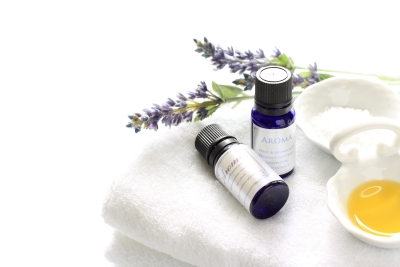The Power of Pleasant Aromas – Enhancing Memory and Cognition During Sleep
It’s no secret that the sense of smell is intimately linked with memories and emotions. But recent research has revealed that this connection might have deeper implications for cognitive health, particularly as we age.
A study published in the Frontiers of Neuroscience on 24 July 2023 found that individuals exposed to pleasant aromas during their sleep demonstrated a significant improvement in their memory. Specifically, those exposed to the scent of an essential oil for 2 hours every night over a 6-month period experienced a 226% improvement in memory. This change was in stark contrast to a control group who only received minimal amounts of the scent.
Furthermore, these improvements were not just subjective. Functional magnetic resonance imaging (fMRI) provided evidence of improved functionality in the brain’s left uncinate fasciculus, an area associated with memory and cognition that often deteriorates with age.
Delving Deeper into the Olfactory System
One unique aspect of the olfactory system is its direct connection to the brain’s memory centers. When this system is functioning optimally, it can potentially bolster the health and capacity of these memory centers. Unfortunately, the reverse is also true: Impairments in olfaction can herald cognitive decline and are a symptom seen in many neurological and psychiatric disorders, including Alzheimer’s disease.
In an earlier study, essential oil exposure for short durations each day led to neurogenesis in the olfactory bulb and hippocampus. This makes sense when considering the olfactory system’s special connectivity to the brain. As senior investigator Michael Leon from the University of California, Irvine, notes that the effects of olfactory stimulation could potentially extend to broader brain functions.
How Health Professionals Can Utilize This Research
Olfactory Enrichment: Consider recommending olfactory enrichment to older adults. This can be done by suggesting they introduce pleasant scents into their sleeping environments. Simple essential oil diffusers can be used to disperse scents such as rose, orange, eucalyptus, lemon, peppermint, rosemary, and lavender.
Monitor Olfactory Function: Given the intimate connection between olfaction and cognition, routinely assessing olfactory function in older patients can offer insights into their cognitive health.
Further Reading: For a deeper understanding of olfaction and its effects on cognitive health, consider exploring the research of Michael Leon and the associated publications from the University of California, Irvine. Research on environmental enrichment focusing on odor stimulation also offers valuable insights.
Caveats and Future Prospects
While this research is promising, it’s worth noting that the study size was small. There’s also room for more comprehensive studies examining other cognitive functions beyond memory.
Donald Wilson, an expert from NYU Langone Medical Center, points out that though the study’s findings are preliminary, they do highlight the potential of using odor training during sleep as a tool for cognitive improvement.
For health professionals and their patients, the takeaway is that even something as simple as introducing pleasant aromas during sleep could hold the key to maintaining or even enhancing cognitive health. As always, further research will provide more clarity on this fascinating connection between our sense of smell and brain health.

